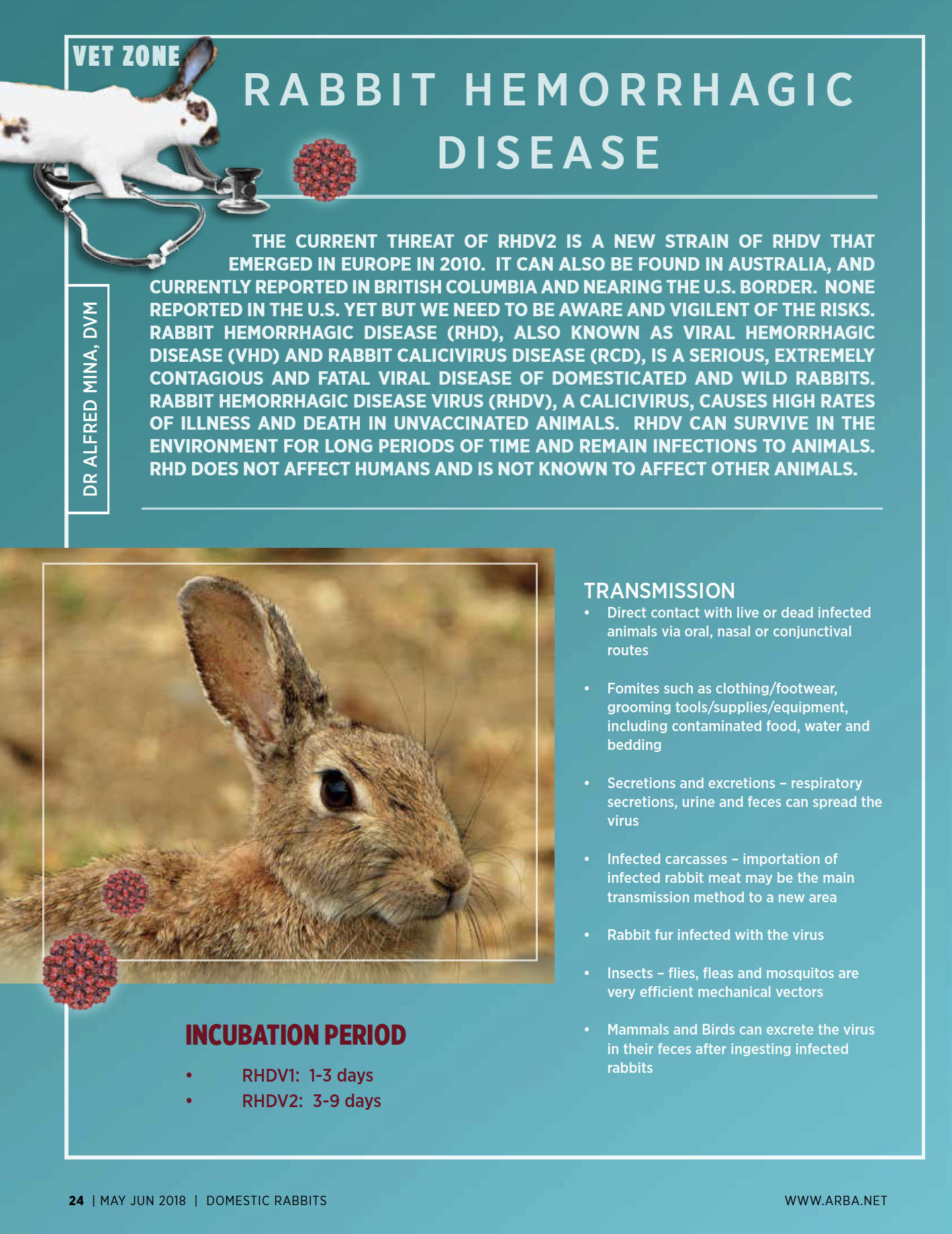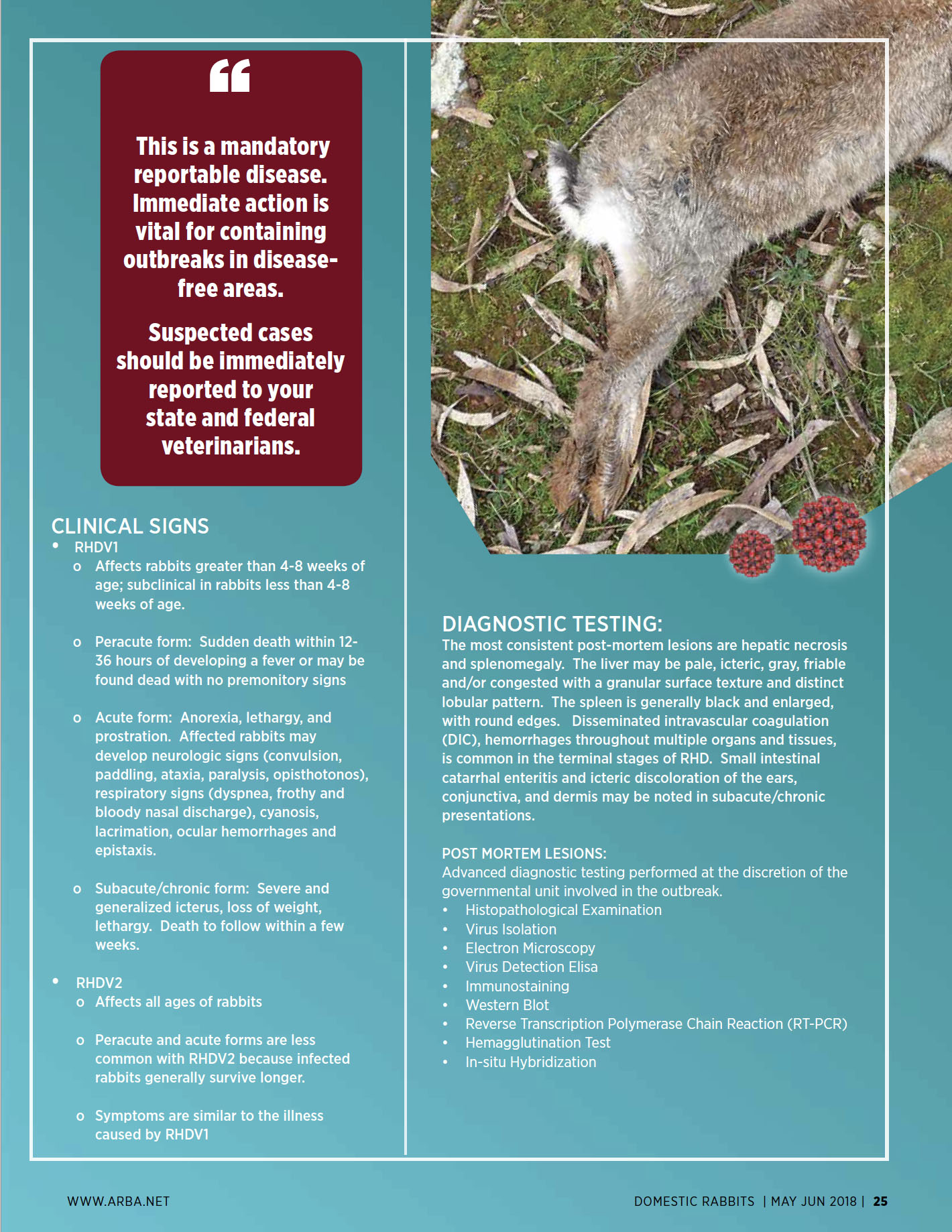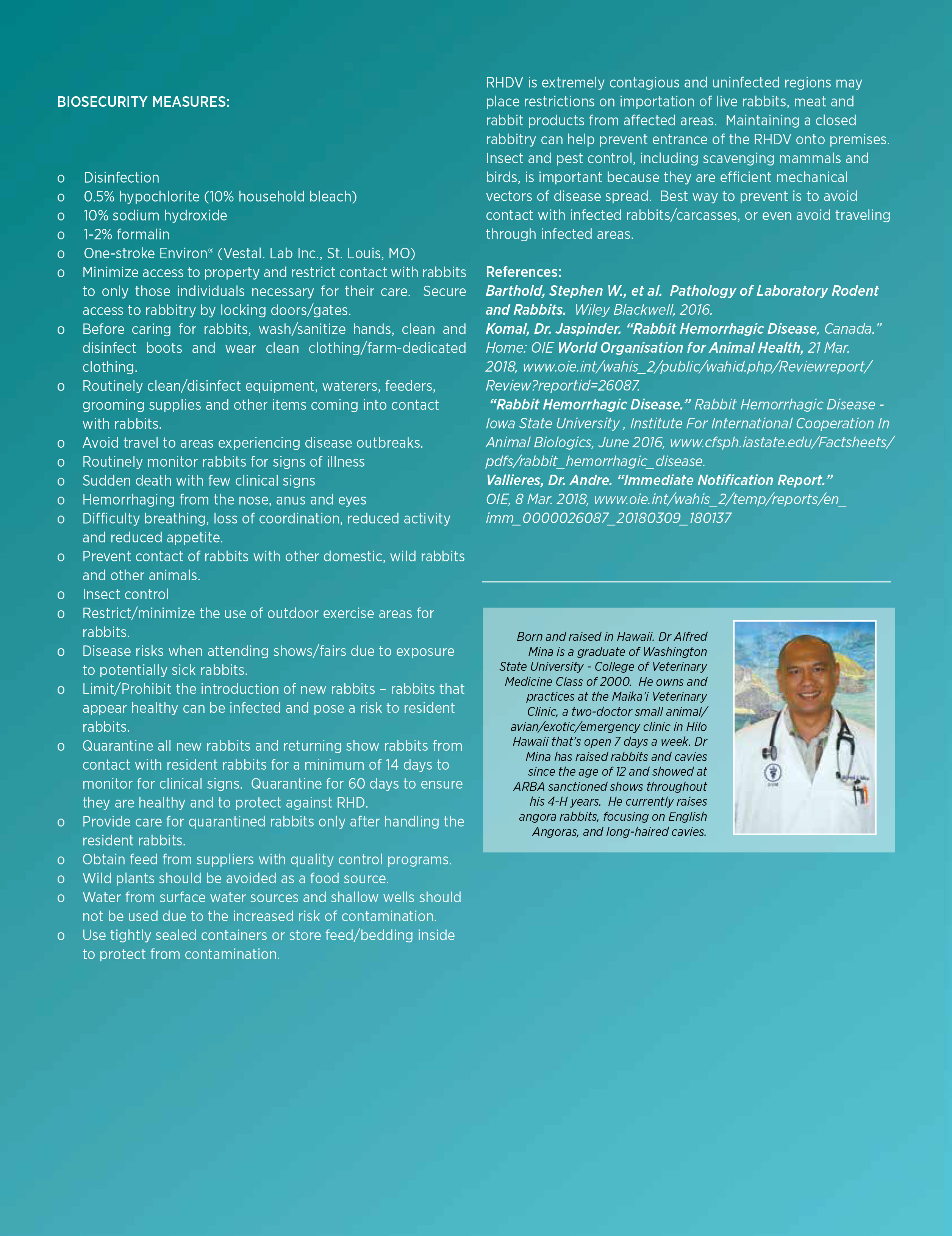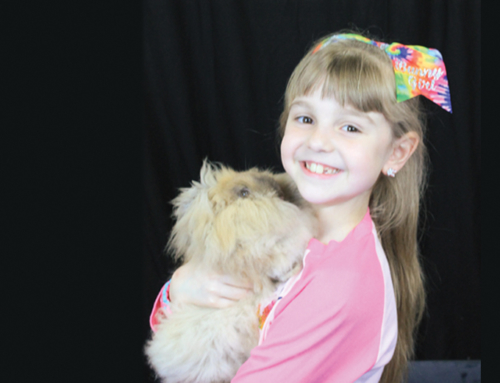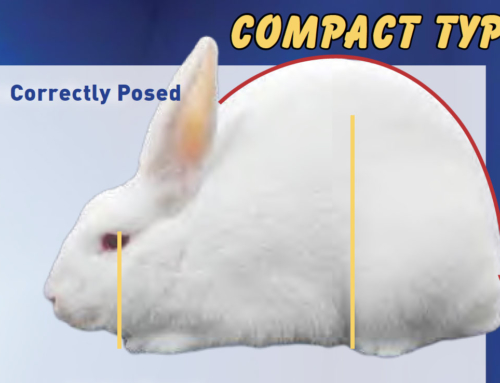If you are a breeder or grower who purchases live rabbits, AGM recommends you review your biosecurity measures as a precaution and take steps to address potential gaps. The following actions will significantly reduce the chance of RHDV2 or other contagious diseases affecting rabbits:
• Do not allow pet, feral, or wild rabbits to have contact with your rabbits or gain entry to the facility or home. If you own domestic rabbits, do not release them into the wild.
• Do not allow visitors in rabbitries or let them handle pet rabbits without protective clothing (including coveralls, shoe covers, hair covering, and gloves).
• Always wash hands with warm soapy water before entering your rabbit area, after removing protective clothing and before leaving the rabbit area.
• Do not introduce new rabbits from unknown or untrusted sources. Do not add rabbits to your rabbitry from animal shelters or other types of rescue operations.
• If you bring outside rabbits into your facility or home, keep them separated from your existing rabbits. Use separate equipment for newly acquired or sick rabbits to avoid spreading disease.
• Sanitize all equipment and cages moved on or off premises before they are returned to the rabbitry. We recommend disinfecting with 10% bleach or 10% sodium hydroxide mixed with water.
• Establish a working relationship with a veterinarian to review biosecurity practices for identification and closure of possible gaps.
Rabbit owners who have questions about this disease or suspect RHDV2, should contact their veterinarians.
